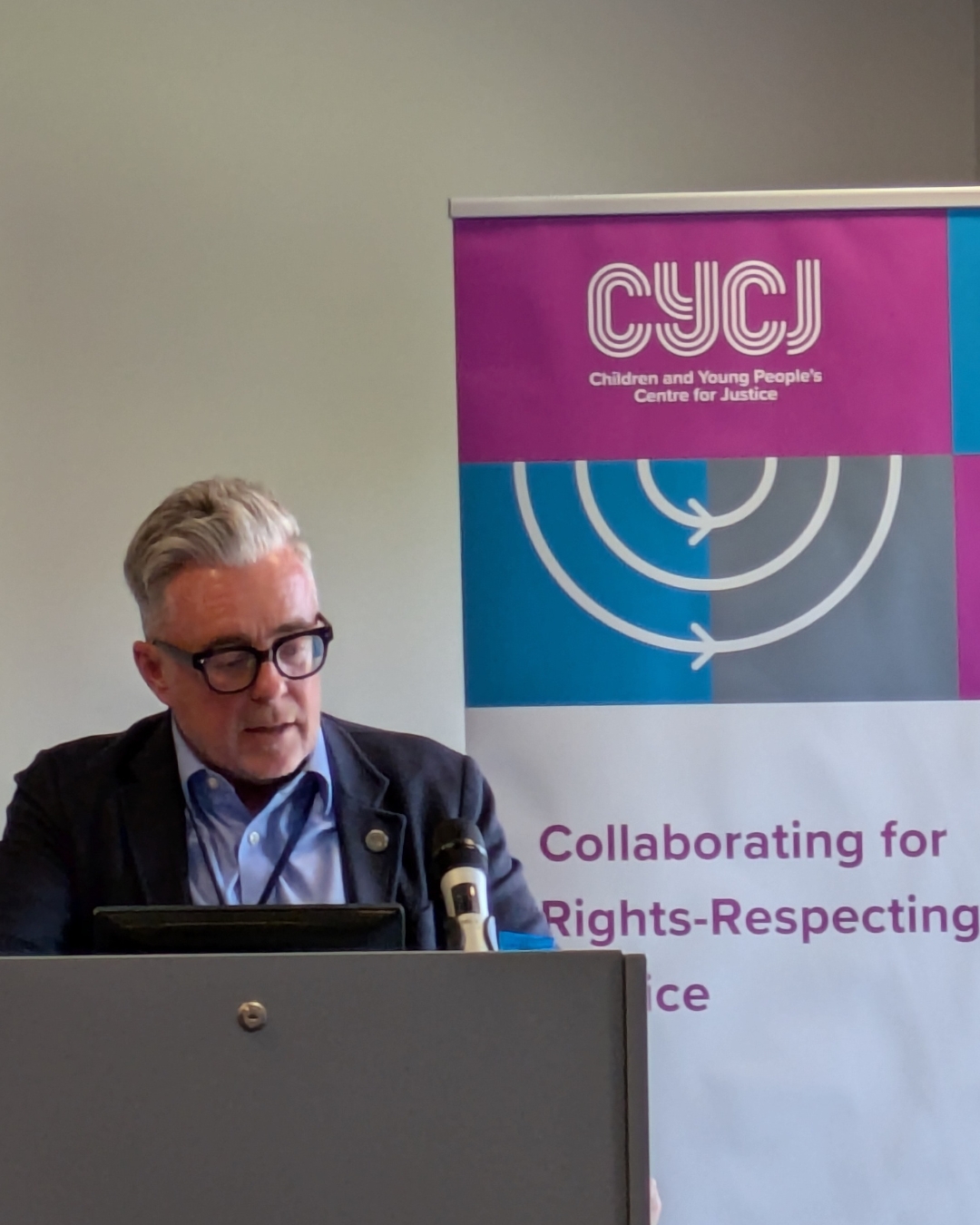
Hearings for older children in focus at National Youth Justice Conference

Children’s Hearings Scotland National Convener Elliot Jackson recently addressed the National Youth Justice Conference on the role of hearings in fulfilling the needs of older children.
Speaking at the conference on 11 June, Elliot gave an overview of the Children’s Hearings System, its place in Scotland’s youth care and justice context, how it has evolved, and the key role volunteers play across the country.
The 2025 conference’s focus on hearings follows the passing of the Children (Care and Justice) (Scotland) Act 2024, which will allow any child under the age of 18 to be referred to the Children’s Reporter to arrange a hearing, regardless of any previous involvement in the hearings system.
Older children within the hearings system
The theme for this year’s conference, hosted across 11 and 12 June by the Children and Young People’s Centre for Justice (CYCJ), was ‘Childhood, Safeguarding and the Children’s Hearings System’.
During his speech, Elliot named contextual risks disproportionately affecting older children which may lead to referral to the hearings system. These include child sexual exploitation, domestic abuse and coercive control, and criminal exploitation.
Following Elliot’s presentation, Neil Hunter, Chief Executive Officer of the Scottish Children’s Reporter Administration (SCRA), and Andrew Gillies, Senior Education and Families Manager in North Lanarkshire, explored how the hearings system can best meet the needs of older children.
The Care and Justice Act means that, in Scotland, all children will receive equal treatment in line with the United National Convention on the Rights of the Child (UNCRC), which states that all people under the age of 18 are children. CHS welcomes the age-appropriate welfare protections the Act extends to older children, who previously could not benefit from the support of a hearing if they were not referred before their 16th birthday.
The wider impact on the hearings system
The changes extending the support of the hearings system to all 16- and 17-year-olds are not expected to be implemented until 2026 at the earliest. While the introduction of more older children will have an impact on the content of hearings, Panel Members already have the skills needed to support such children. Those include listening and speaking to children and the people who matter to them; seeking help from professionals close to the child; and putting measures in place to meet their unmet needs.
The introduction of more 16- and 17-year-olds into hearings is one part of the Act affecting older children. Other provisions of the Act include the removal of under-18s from Young Offender Institutions, which happened in September 2024, and enhancing safeguards for children in police custody.
